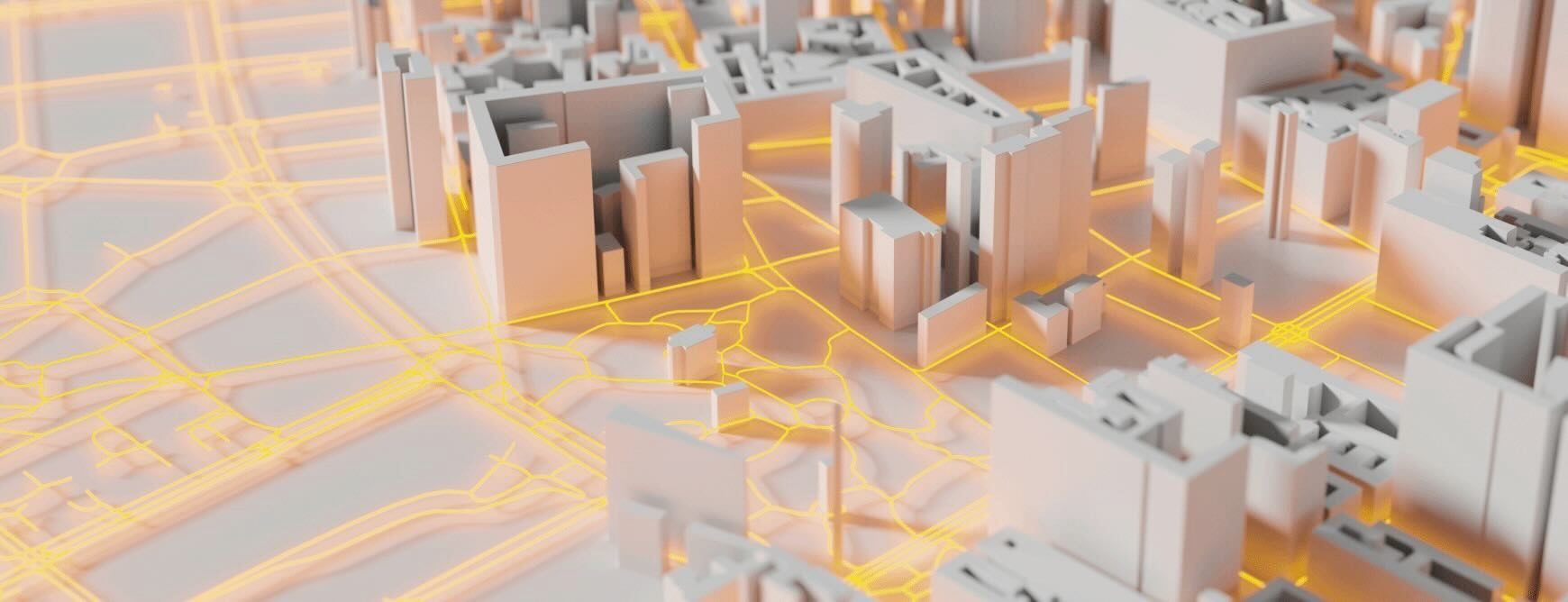Uma cidade inteligente é aquela que busca ativamente o uso de novas tecnologias para melhorar os serviços municipais e atingir metas em áreas como sustentabilidade, saúde pública e planejamento municipal.
Nos últimos anos, conforme tecnologias como redes avançadas de comunicação, coleta e análise de dados e dispositivos conectados se tornaram mais comuns, os governos municipais ganharam visibilidade sobre como suas cidades estão funcionando. Eles também ganharam novas maneiras de responder a problemas urgentes e às necessidades dos cidadãos em tempo real, enquanto também planejam o futuro.
Embora a “cidade” nas cidades inteligentes se refira aos governos municipais, as soluções para cidades inteligentes são colaborações que normalmente são desenvolvidas e construídas por inovadores do setor privado. Em alguns casos, além de adicionar tecnologia inteligente aos seus próprios ativos, os governos municipais podem buscar práticas recomendadas para informar regulamentos ou incentivos para o setor privado.
Embora muitas cidades tenham usado funções isoladas de cidades inteligentes por muitos anos (no controle de tráfego, por exemplo), uma característica das cidades inteligentes de hoje é a unificação dos sistemas e seus dados para encontrar soluções mais profundas para os problemas e obter uma visão mais holística das cidades e seus desafios.
O papel dos dados nas cidades inteligentes
Os dados são a matéria-prima essencial envolvida em quase todas as tecnologias de cidades inteligentes. Em alguns casos, esses sistemas dependem da coleta e análise de grandes quantidades de dados que são enviados para a nuvem. Em outros casos, os dados devem ser mantidos acessíveis para uso em tempo real, de modo que uma variedade de estratégias de armazenamento e hardware sejam necessários.
Elementos dos sistemas de cidades inteligentes
Os sistemas de cidades inteligentes podem ser compostos por:
- Câmeras e sensores conectados que medem variáveis e produzem os fluxos de dados necessários para definir ações e dar suporte à tomada de decisões. Esses endpoints podem ser visuais, ambientais ou baseados no uso da rede.
- Infraestrutura conectada, como dispositivos de Internet das Coisas (IoT, Internet of Things) que podem produzir dados e receber instruções em tempo real.
- Armazenamento de dados que recebe, agrega e armazena as enormes quantidades de dados produzidos pelos endpoints.
- Aplicativos que trabalham com os dados para definir respostas e produzir insights.
- Resposta em tempo real na forma de ações ou comunicação direta com cidadãos que aproveita os insights para fazer mudanças ou fornecer informações que podem melhorar a qualidade de vida.
Usos da tecnologia Smart City
Novas soluções para cidades inteligentes continuam a surgir à medida que a tecnologia evolui, mas podem incluir:
- Gerenciamento de resíduos: Os sensores em recipientes de lixo e reciclagem podem transmitir seu status e enviar um alerta quando a caixa precisar ser esvaziada.
- Tráfego e trânsito: Os dados coletados sobre tráfego ou pessoas são monitorados em tempo real e usados para direcionar controles de tráfego ou cronogramas de trânsito.
- Qualidade do ar: Os sensores fornecem dados em tempo real sobre a qualidade do ar para identificar padrões e áreas problemáticas.
- Análise de localização: Juntos, os dados e mapas são sinergizados para produzir insights avançados e geograficamente baseados nas operações da cidade, no movimento de pessoas e mercadorias e nos riscos ambientais.
- Gêmeos digitais: Um gêmeo digital é um modelo virtual detalhado de uma cidade, com todos os seus pontos de dados atualizados em tempo real, assim como a cidade real. Essa é uma tecnologia bastante nova para as cidades, mas já está se mostrando promissora como uma ferramenta especialmente útil para visualizar as operações da cidade em alto nível e realizar análise preditiva.



